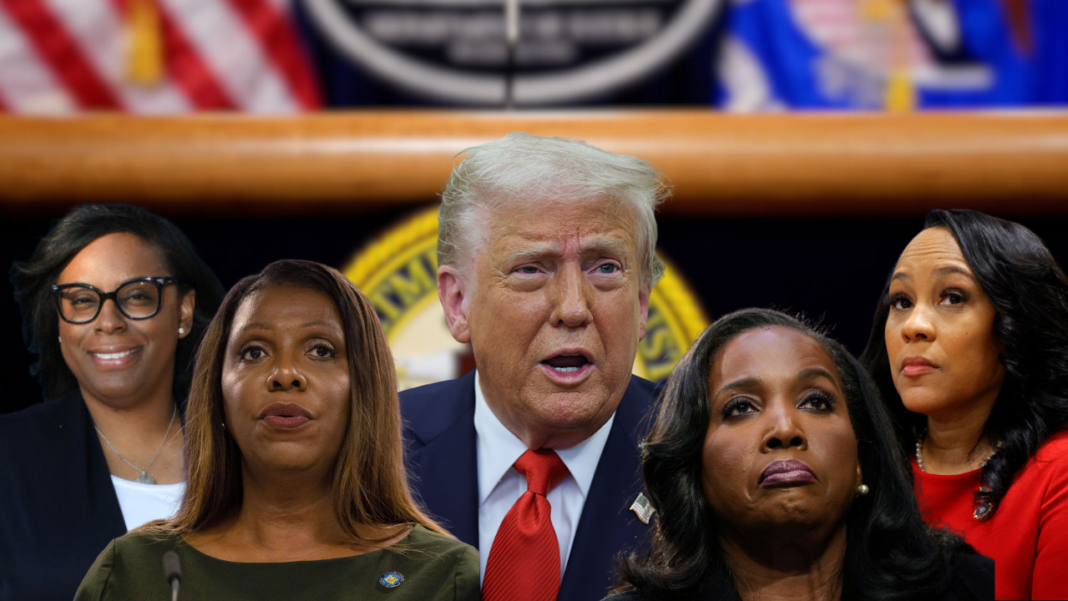Trump’s Indictment of Letitia James: A Political Precedent?
On Thursday, President Donald Trump escalated his ongoing feud with political adversaries by directing his Justice Department to indict New York Attorney General Letitia James for alleged mortgage fraud. This action not only draws attention to Trump’s vow to pursue those he views as political enemies but also raises broader questions about the motivations behind such legal maneuvers.
The Charges Against Letitia James
Letitia James, the first African American woman to hold the position of New York’s Attorney General, was charged with mortgage fraud regarding a property she owns in Virginia. Allegations from the Eastern District of Virginia claim that James misrepresented her use of the home in loan documents, declaring it a secondary residence while it was, in fact, a rental investment. The indictment suggests that this misrepresentation allowed her to gain favorable loan terms—totaling nearly $19,000 in savings.
Despite these serious accusations, James categorically denies any wrongdoing and decries the indictment as part of a “political retribution” scheme orchestrated by Trump due to her earlier successful lawsuits against him for business fraud. She firmly maintains that her actions as Attorney General were wholly aligned with her duty to the law, not influenced by political bias.
The Pattern of Targeting
Beyond the specifics of this case, many critics perceive a troubling pattern: the targeting of prominent Black women in political roles. Michael Blake, a former Obama White House aide, noted that this isn’t a singular case but rather part of an ongoing trend where Trump and his administration appear to focus their ire on Black female political figures. He explicitly called it a manifestation of Trump’s historical “hatred toward Black women and Black people,” citing examples from James to other public figures like Fani Willis and Lisa Cook.
This sentiment resonates with those who argue that using legal instruments as a “weapon” against political adversaries reflects a broader, more troubling trend in American politics. Blake indicated that the cowardice shown by Republican insiders, who often remain silent in the face of such actions, adds layers to an already complex political landscape.
Tactics and Implications
The targeting of James, alongside other female figures in office, prompts concerns about the implications of using federal law enforcement to settle political scores. This is particularly poignant coming from a man who has openly advocated for revenge against those he perceives as enemies. Critics argue that it distracts from pressing issues such as healthcare and public welfare that are often sidelined in favor of personal vendettas.
Moreover, Republican leaders’ inaction toward Trump’s maneuvering raises questions about the ethical implications of politicizing the Justice Department. While many Republicans echo Trump’s sentiment, their unwillingness to stand against this tactic exposes them to accusations of complicity in what critics call “political intimidation.”
Other Notable Targets
James isn’t alone in being on Trump’s radar.
Fani Willis, the Fulton County District Attorney, has also faced scrutiny. Willis led a significant indictment against Trump and his associates for allegedly working to subvert the 2020 election results in Georgia. Following this, the Trump administration subpoenaed records related to her travel, further indicating a continued interest in undermining her efforts.
In another instance, Lisa Cook, nominated for the Federal Reserve Board, found herself targeted by allegations from Trump, mirroring those against James. Cook was accused of mortgage fraud, but unlike in James’s case, she managed to successfully defend her position in court, showcasing an assertive pushback against Trump’s attempts to interfere with the traditionally independent institution.
LaMonica McIver, a new member of Congress from New Jersey, is yet another example. Indicted after an altercation during an oversight visit at an ICE facility, McIver faces serious charges that critics argue are politically motivated. She maintains her innocence and has characterized the prosecution as a discriminatory tactic aimed at silencing her activism.
The Broader Context
This ongoing saga around Trump, James, and other prominent political figures raises essential discussions about the intersection of race, gender, and politics in America. As legal battles unfold, the implications of politically charged prosecutions remain a topic of heated debate. The narrative also reflects a larger question about the role and responsibilities of authority figures in the pursuit of justice: Is the legal system functioning as intended, or has it become a tool for political warfare?
As the dust settles on these indictments and accusations, one thing remains clear: the political landscape is as charged as ever, with ramifications that may shape the future of American governance and public trust for years to come.



